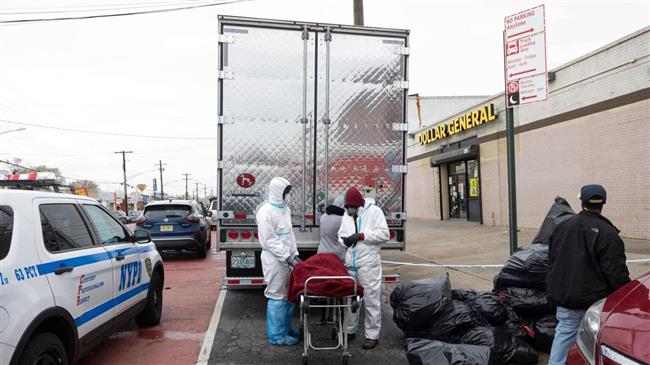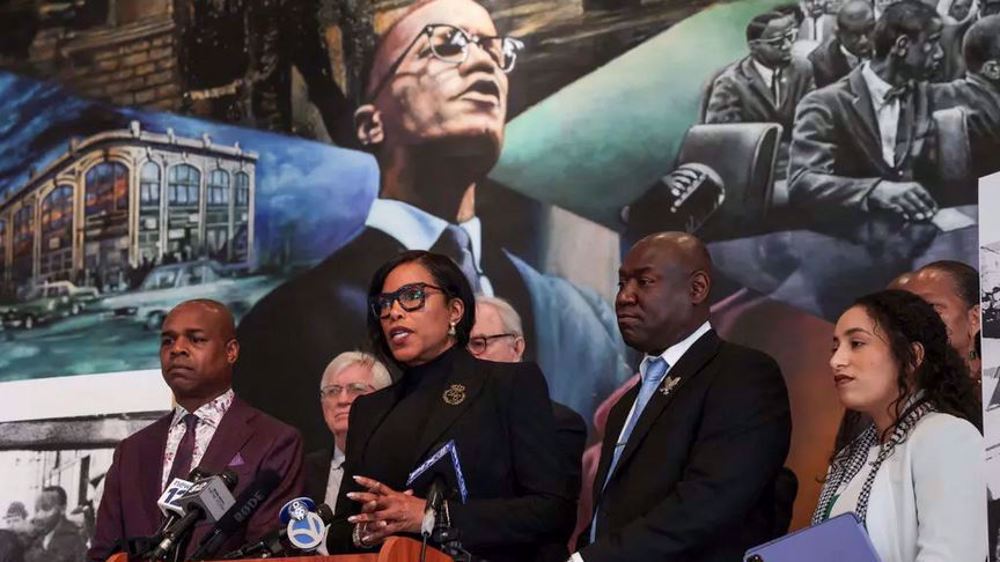US missed chances to slow coronavirus spread: Senior CDC official
A senior US health official says the United States missed chances to slow the spread of the coronavirus, noting the country “did not recognize” the scale of the pandemic when it first began.
The limited number of tests available to be used as well as a slow response in understanding how the virus was coming into the US from Europe resulted in an increase in the number of cases from late February, admitted Dr. Anne Schuchat of the US Centers for Disease Control and Prevention (CDC) in an article.
“We clearly didn't recognize the full importations that were happening.”
The virus, which first began to spread in China, has so far affected more than 1,160,000 and killed over 67,400 across the United States, making it the hardest-hit nation in the world.
On Friday, President Donald Trump increased his estimate of possible deaths in the country, saying he hoped for less than 100,000 fatalities, a higher upper limit than the 60,000 to 70,000 deaths he projected on Monday.
Trump, whose administration has been criticized for mishandling the crisis, has repeatedly celebrated his decision, announced on 31 January, to prevent foreign nationals from entering the US who had traveled to China in the previous fortnight.
Dr. Schuchat noted in her article, however, that approximately two million visitors from Italy and other European countries arrived in the US during February, but the government did not block travel from those countries until mid-March.
“The extensive travel from Europe, once Europe was having outbreaks, really accelerated our importations and the rapid spread.
“I think the timing of our travel alerts should have been earlier.”
Dr. Schuchat went on to say that she felt an evolving public understanding of the deteriorating coronavirus crisis, as well as a change in the type of measures taken, including stay-at-home orders, noting people were willing to accept the gravity of the situation.
“I think that people's willingness to accept the mitigation is unfortunately greater once they see the harm the virus can do.There will be debates about should we have started much sooner, or did we go too far too fast.”
Despite the revelations by Dr. Schuchat, her article still leaves several questions unanswered, said Dr. Howard Markel, a public health historian at the University of Michigan.
An example is the omission of details of what kind of proposals were put forward, and maybe ignored, during the critical period prior to a jump in the number of infected people in late February, Howard said.
“I want to know ... the conversations, the memos, the presidential edicts.Because I still believe this did not need to be as bad as it turned out.”
VIDEO | Yemen’s armed forces target Israeli airbase amid nationwide pro-Palestinian rallies
Putin vows more test of new hypersonic missile
VIDEO | Jordanians continue rallies to denounce Israeli genocide in Gaza, Lebanon
6 Israeli soldiers commit suicide: Reports
Diplomat discourages recourse to pressure, intimidation, confrontation against Iran
UN: 2024 deadliest year for aid workers amid genocide in Gaza
Gaza health official warns of hospital shutdowns within 48 hours
Israel kills 5 more paramedics in southern Lebanon: Health ministry












 This makes it easy to access the Press TV website
This makes it easy to access the Press TV website